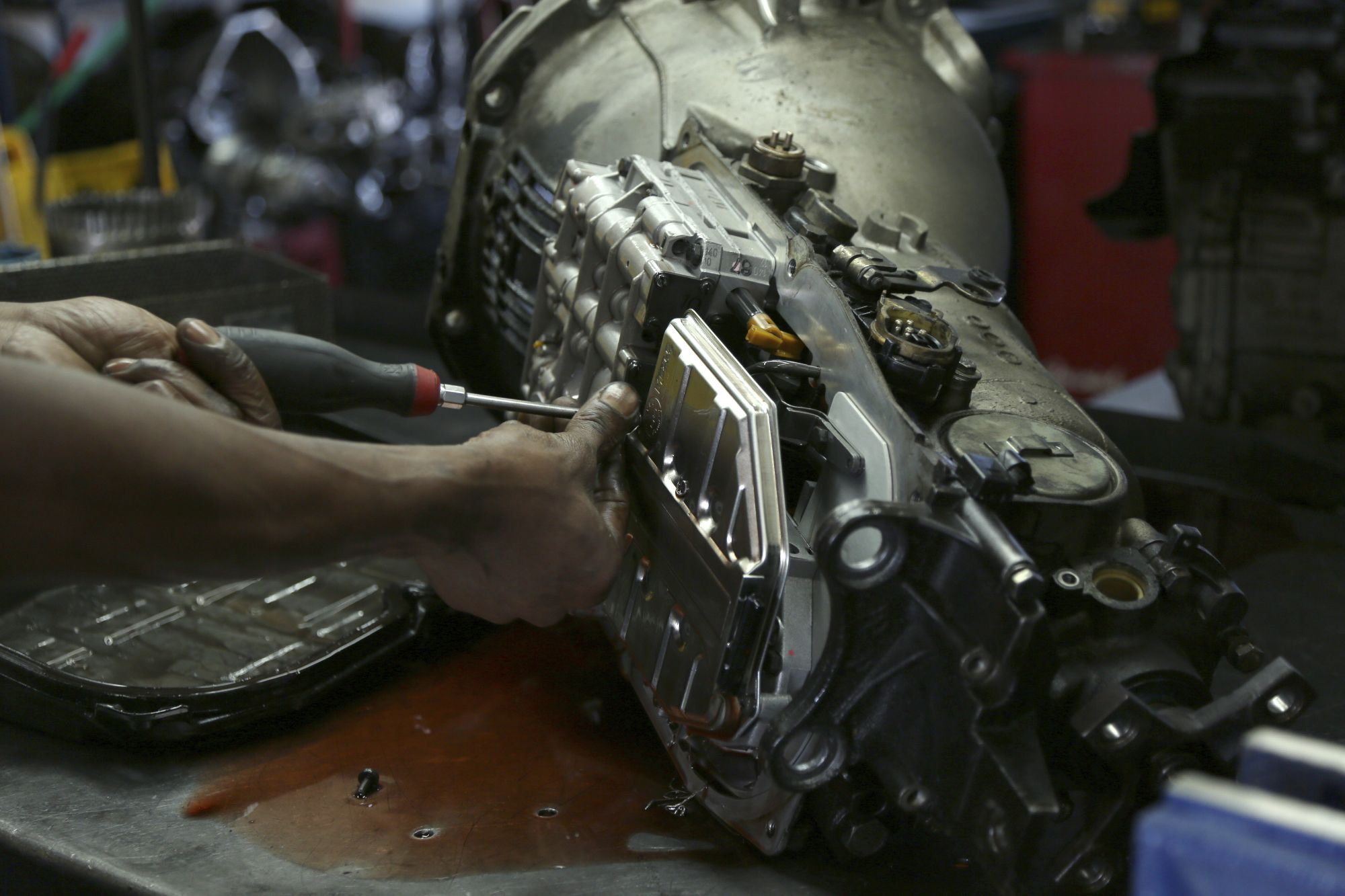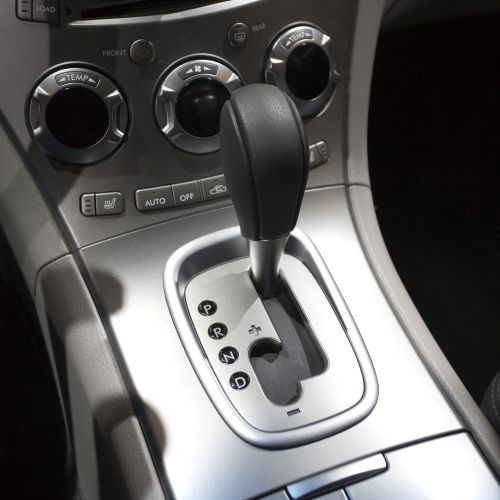
Transmission Services in Burlington
At Duncan Exxon Service Center, we understand the fear that often accompanies the mention of "transmission repair." Rest assured, there is hope. Whether you drive a manual or automatic vehicle, be it heavy-duty or low-range, your transmission plays a crucial role at the heart of your vehicle's drivetrain.
Responsible for translating the engine's power into forward motion, the transmission is a vital component. When issues arise with this critical part, it can permanently cripple your car. Fortunately, our seasoned experts possess extensive experience working on transmissions of all sizes and types.

Our Transmission Services Include:
Automatic Transmission
Automatic transmissions shift gears seamlessly, optimizing driving performance by adjusting gears based on various factors. These transmissions typically feature four to five forward gear ratios, along with a Reverse, Park, and Neutral gear. Shifting between gears occurs automatically once the car is in Drive, eliminating the need for a clutch pedal or manual gear shifting, as in a Manual Transmission.
Clutch
Your car's clutch serves the vital function of enabling the engine and gearbox to engage and disengage during gear changes. This process allows the engine's output shaft to keep spinning while relieving pressure on the gears, preventing them from shifting improperly.
Manual Transmission
Manual Transmission vehicles involve the use of a clutch pedal and gear shift to manually change gears, determined by the vehicle's speed. Manual transmissions can encompass two to eight gears and are categorized into front-wheel drive and rear-wheel drive configurations. Typically, manual transmissions require less maintenance than automatic ones.
Transfer Cases
A transfer case is a component of four-wheel drive systems in four-wheel drive and all-wheel drive vehicles. It receives power from the transmission and directs it to both front and rear axles. Transfer cases can be chain-driven in most contemporary vehicles. These components connect to the transmission, front and rear axles through drive shafts to ensure maximum control.
Transmission Replacement
In motor vehicles, the term "transmission" usually refers to the gearbox. The transmission employs gears and gear trains to transmit speed and torque from a rotating power source to another device. Vehicle owners can opt for the replacement of their car's transmission with a new, rebuilt, remanufactured, repaired, or used transmission.
Transmission Service, Diagnose and Repair
The transmission interfaces with key vehicle components and must function optimally for your safety. Transmission services include filter replacements and fluid drainage to prevent transmission damage.
Transmission Fluid FAQs
How often do you really need to change transmission fluid?
It's important to change your transmission fluid, but the type of transmission you have affects your ideal changing interval. Most cars on the road today have an automatic transmission. If you drive a car with an automatic transmission you need to change your transmission fluid every 60,000 to 100,000 miles. If your car has a manual transmission, it's recommended that you get the transmission fluid changed every 30,000 to 60,000 miles.
What are signs that you need to change your transmission fluid?
The most obvious sign that it is time to change your transmission fluid is a warning light on the dashboard. Other signs may include the car's engine revving when you accelerate or go around corners, difficulty shifting, a chattering noise when you start driving, a slight burning smell or a puddle under your car. Like always, if you are uncertain about a noise, leak or feeling, we encourage you to bring your vehicle to us here at Duncan Exxon Service Center in Burlington.
Does a car run better after transmission fluid change?
Yes. Changing your car's transmission fluid regularly is a great way to improve fuel efficiency. Your vehicle's transmission will run smoother after changing the fluid, which means your engine will perform better.
What is the average life of a transmission?
Regular fluid changes, filter replacements, and following a proper maintenance schedule are crucial for maximizing transmission life. Neglecting these can significantly shorten its lifespan. Most modern automatic transmissions, with proper maintenance, can last anywhere from 100,000 to 200,000 miles. Manual transmissions typically last longer, often exceeding 250,000 miles with good care.
Which type of transmission lasts the longest?
Opting for a manual transmission means simpler upkeep. They require less frequent servicing than automatics and aren't picky about specific oil types. Cars with stick shifts often enjoy a longer lifespan compared to their automatic siblings of the same model.
To learn more about our Transmission services, call us at 336-226-8044 or request a quote by clicking below:
Request Quote
Discover More About Transmission Repair Services At Duncan Exxon Service Center in Burlington
Undercar Services
4X4 Services
What our clients are saying about us
We have established longterm and stable partnerships with various clients thanks to our excellence in solving their automotive needs!
I highly recommend Duncan's Exxon. They can be trusted to be honest and not try to rip you off. I have used them a number of times over the years and have always felt like I was treated right.
Really appreciate Duncan Exxon and everything they do for their customers!! They repaired an ongoing problem with my car and it is no longer leaking. Give them a try!!












